Our plan for 2020: more climate progress in WA
Over the course of a quick eight weeks, Washington lawmakers will consider hundreds of proposals. Here are five climate bills we need to keep top priority on their agenda.


• Why WA needs Clean Fuels Now (pdf)
• Clean Fuels for Washington FAQ (pdf)
Transportation fuels are responsible for nearly half of our climate and harmful air pollution in the Pacific Northwest: 46% of Washington’s greenhouse gas emissions and 36% of Oregon’s. West coast jurisdictions California, Oregon and British Columbia already have Clean Fuel Standard policies to curb and reduce that pollution. Clean Fuels Standards have proved to be an effective means of reducing carbon and air pollution from the transportation sector. They allow consumers to choose cleaner fuels that support local economic development in rural communities and improve public health. Clean Fuel Standards work by requiring oil refineries and importers to reduce the carbon intensity of their fuels, providing more low-carbon fuels and electricity to fuel our transportation system.
In Washington State, consumers spend $8 billion a year on gasoline and diesel. As consumers we now have little choice but to buy and use polluting gasoline and diesel fuel because the oil companies have long maintained a monopoly on our fuel options. By transitioning to clean fuels, we can keep more of this money in state and end our sole reliance on fossil fuels to power our vehicles and transportation systems. Fueling up with electricity costs consumers about a third as much as gasoline, and there are over 2,000 people working in the electric vehicle industry already in Washington. Dependence on a global fuel market is already costly for Washington residents, with volatile fuel prices and rising health care costs.
Health professionals link air pollution directly to asthma, lung cancer, and other respiratory diseases. Cleaning up pollution will protect public health and save us on healthcare costs. A recent study found that California’s Clean Fuel Standard could save $8.3 billion in avoided public health costs by 2025 because of fewer asthma attacks and hospitalizations, lower rates of lung cancer and heart attacks, and thousands of fewer lost workdays. A similar policy in Washington could lead to the same public health benefits by cleaning up our air. Leading public health organizations like the American Lung Association and Puget Sound Clean Air Agency view a Clean Fuel Standard as one of the most important ways to improve public health and transition our transportation to cleaner sources.
Electric cars and other light-duty vehicles are already an important climate solution when charged by a renewable energy-powered grid. Marine vessels, long-haul trucks, and airplanes will likely need to rely on lower carbon liquid fuels for the foreseeable future to reduce their carbon emissions. Just as we are expanding our ability to produce clean electricity, we can source our biofuels from sustainable feedstocks, including used cooking oil, dairy manure, and other waste streams that would otherwise only increase our emissions. A Clean Fuel Standard helps make sure that all of our transportation sector’s energy sources are developed and delivered in harmony with climate and environmental needs. To transport people and goods more efficiently, and over fewer miles, will require a variety of approaches including building and expanding transit systems, as well as safe infrastructure for active modes of transportation, such as walking, cycling, and scootering.
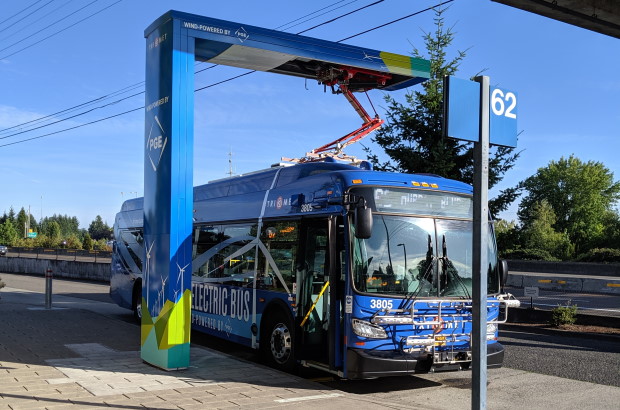
By: Meredith Connolly on
We are excited that the City of Portland and TriMet have taken some big strides to accelerate toward 100% clean and carbon-free operations!

By: Kimberly Larson on
A Clean Fuel Standard is Washington's next step taking action against climate change. Don't miss an important public hearing this Thursday in Seattle!

By: Leah Missik on
Tuesday’s results were disappointing, but we’re determined to continue fighting for our climate, our health, and our communities. Join us in supporting a strong clean fuel standard!
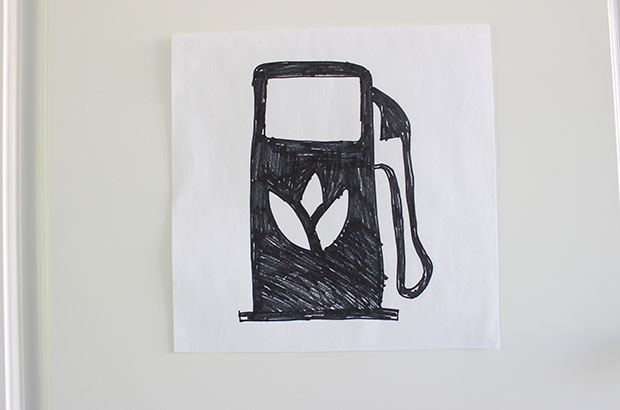
By: Joëlle Robinson on
The Puget Sound region has a huge opportunity to clean our air and fight climate change—by enacting a Clean Fuel Standard. Let's encourage our Regional Council to follow through!

By: Joëlle Robinson on
In the Puget Sound region, we have a great near-term chance to cut climate pollution from our transportation sector, and move beyond oil.
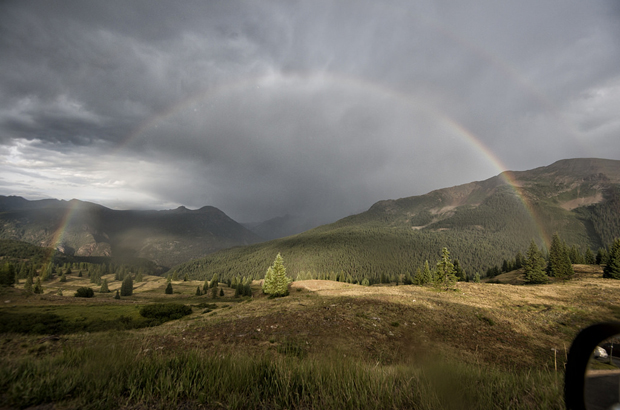
By: Kelly Hall on
Climate policy is not a single undertaking. We need many solutions working together, building on the success of clean electricity to end our reliance on fossil fuels in our buildings and our transportation.
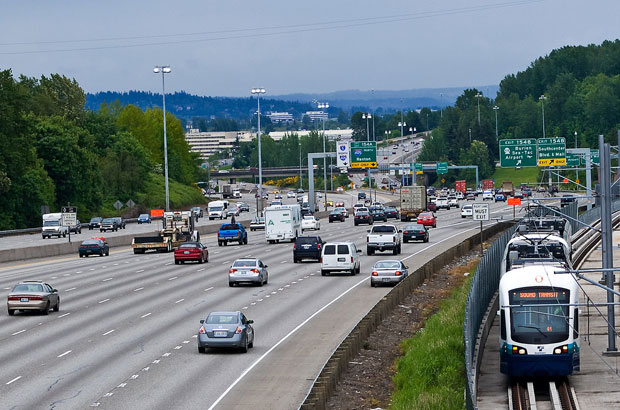
By: Joëlle Robinson on
US states and previous federal administrations (from both parties) have worked hard to protect our air quality and our climate. Now let's stand together and defend against Trump's recklessness.
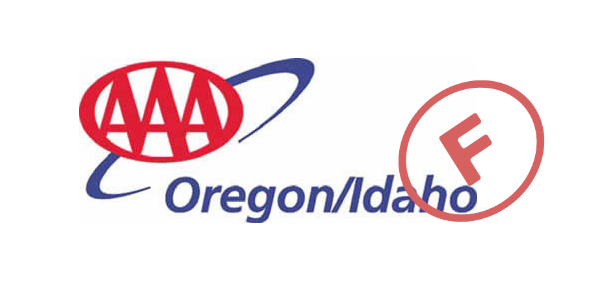
By: Meredith Connolly on
The end of Oregon’s 2019 legislative session exposed some of the egregious corporate lobbying in Salem that blocks climate action – sometimes in public, but many times behind the scenes in the halls of the State Capitol. One of those companies is the American Automobile Association (AAA) of Oregon. Yes, the same AAA that you call for a lifeline when your car breaks down – but apparently that lifeline doesn’t extend to the climate emergency we’re currently experiencing.
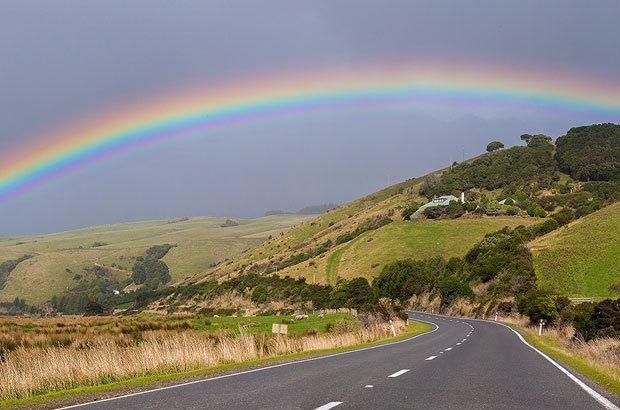
By: Joëlle Robinson on
Washington is the only West Coast jurisdiction lacking a standard for low-carbon transportation fuels. That can change, if we act now.
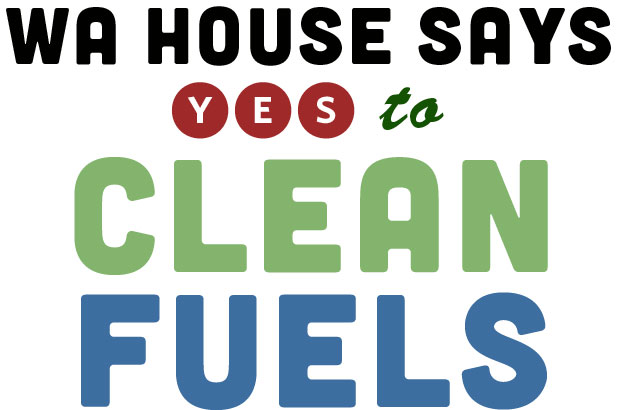
By: Climate Solutions on
The Washington House of Representatives has passed a Clean Fuel Standard, which would align the state with its West Coast neighbors--expanding the market for low carbon fuels, reducing the costs and impacts of air pollution to public health, and increasing economic investment and returns from local renewable fuel production.
Join our email list to learn about what we do and how to get involved.
Over the course of a quick eight weeks, Washington lawmakers will consider hundreds of proposals. Here are five climate bills we need to keep top priority on their agenda.
Washington's legislature this year has an important piece of unfinished business: a Clean Fuel Standard that will take a bite out of our state's largest source of emissions, protecting our health and our climate.
A growing list of states and territories have adopted carbon pricing policies, enacted more robust low-carbon fuel standards, and committed to a timeline for transitioning to 100% clean electricity, but Oregon is not among them.
“We want cleaner air and cleaner fuels." At a public hearing this week, the Puget Sound Clean Air Agency heard a flood of calls for cleaner air, strong action on climate, and increased growth for the region's clean energy economy.
We are excited that the City of Portland and TriMet have taken some big strides to accelerate toward 100% clean and carbon-free operations!
A Clean Fuel Standard is Washington's next step taking action against climate change. Don't miss an important public hearing this Thursday in Seattle!
Tuesday’s results were disappointing, but we’re determined to continue fighting for our climate, our health, and our communities. Join us in supporting a strong clean fuel standard!
The Puget Sound region has a huge opportunity to clean our air and fight climate change—by enacting a Clean Fuel Standard. Let's encourage our Regional Council to follow through!
A clean fuels policy covering the Puget Sound region would create a market approximately the same size as the market for Oregon’s Clean Fuels Standard, while improving air quality in some of the most polluted freeway corridors.
In the Puget Sound region, we have a great near-term chance to cut climate pollution from our transportation sector, and move beyond oil.